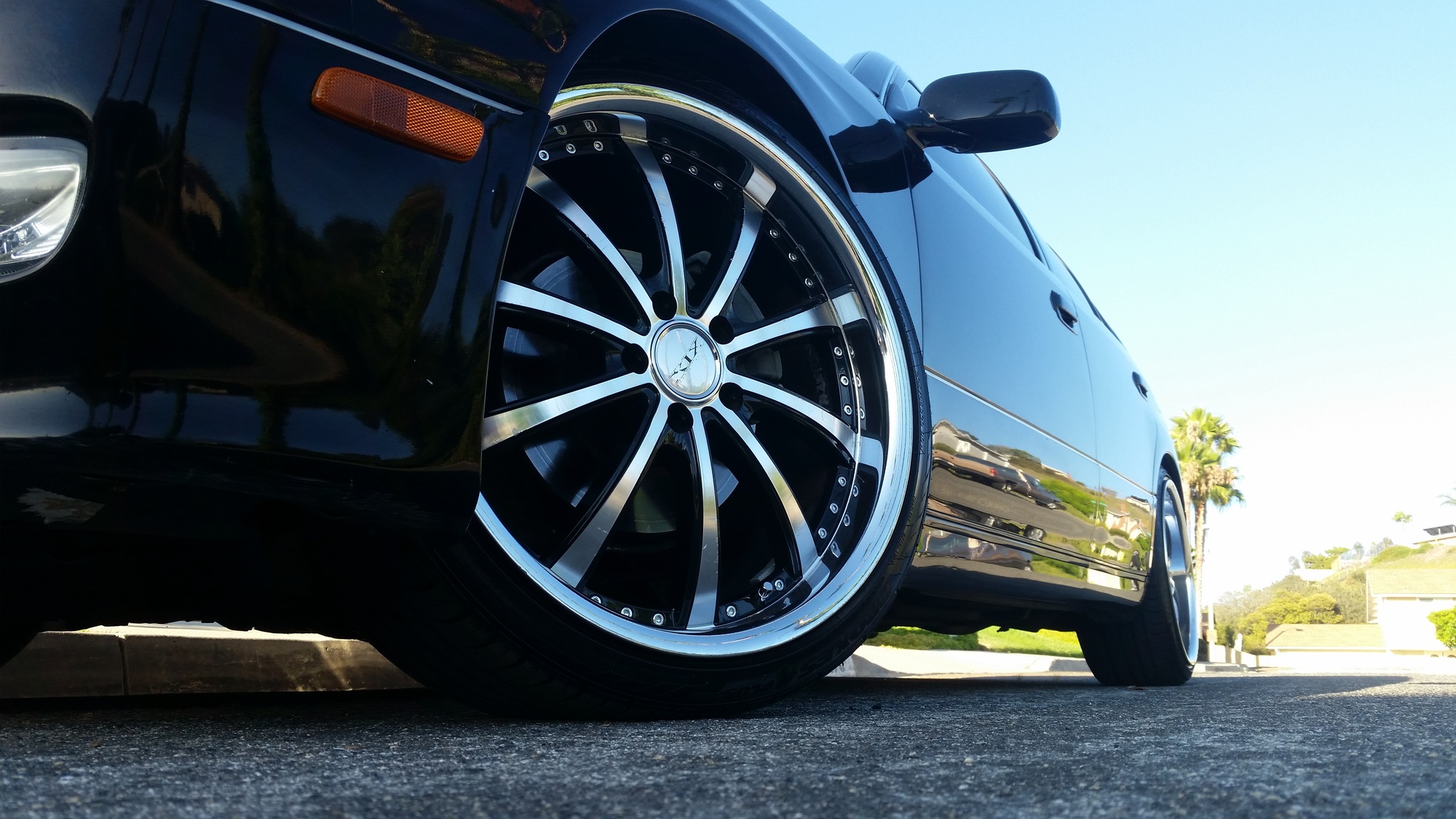Did you know that on average, car owners spend around $1,500 in the first 90 days after buying their car to upgrade it with customizations?
If you’re thinking about making some customizations to your own new ride, one of the best places to start is with the wheels. But, when it comes to forged vs cast wheels, how do you know which option is right for your car?
You’ve come to the right place for guidance.
Keep reading to learn about the difference between cast and forged wheels, the pros and cons of each option, and how to choose the right kind of wheel for your vehicle.
Let’s roll!
What Are Cast Wheels?
Both cast and forged wheels are named based on the manufacturing process used to make them. To make cast wheels, aluminum is heated up until it’s in a molten liquid form. Then, it’s poured into a mold using a vacuum, where it’s cast into its final shape. It stays there in the mold until it’s completely cool.
Then, the manufacturer trims the material and drills where needed. The end result is a smooth surface, that’s an exact copy of the mold, so you know exactly what you’re going to get at the end of the process.
Pros of Cast Wheels
If you’re upgrading your car on a budget, then you’ll love that cast wheels are a less expensive option compared to forged wheels. It’s also a relatively fast process, which helps keep costs down.
Additionally, cast wheels are available in a variety of different alloys, so there’s something to fit every style. And, the nature of the casting process makes it easy to make complicated parts, so you can choose from even the most intricate designs for your wheels. This also helps to keep costs down, because the manufacturer can pass the cost savings over to the buyer.
Cons of Cast Wheels
Unfortunately, the nature of the casting manufacturing process often results in porous spaces inside the material once it cools down. This porosity makes for a weaker wheel that’s more likely to break down than a forged alternative. Over time, the porous spaces can give way to cracking and oxidation, meaning that you’ll need to replace them more often.
Sometimes, to help compensate for the porosity issues, cast wheel manufacturers use larger tolerances, which make the wheel heavier. This can ultimately affect the car’s aerodynamics, which is something to keep in mind, particularly for racing cars.
What Are Forged Wheels?
Forged wheels are made from two different forging processes: machine forging or mold-form forging. Machine forging, which tends to be the more popular method, starts with an aluminum billet, which is another word for a large, solid piece of metal.
The billet is then exposed to very high temperatures and high levels of pressure, which makes it much stronger than it was originally. The forged aluminum is then cut into its final shape.
Mold-form forging differs in that the shaping of the wheel takes place during the forging process instead of afterward. During this process, the grain of the metal follows the shape of the wheel, resulting in a very strong wheel.
Read this full guide on forged wheels for more information about this wheel option.
Pros of Forged Wheels
As we mentioned, the nature of the forging process results in a much stronger wheel, without the porosity issues that you see in cast models. As a result, forged wheels are less susceptible to corrosion and oxidation, so they typically last longer than cast alternatives.
Because they have better structural integrity, they also tend to perform better and can even lead to greater fuel efficiency for your car. Additionally, they tend to be lighter, which can also lead to better performance on the road.
Generally speaking, gear heads consider forged wheels to be the superior option when you’re looking for aftermarket wheel options.
Cons of Forged Wheels
Since the forged wheel manufacturing process is more detailed and time-consuming, they’re more expensive to make. Unfortunately, this means that they’re more expensive to buy as well. If you’re trying to update your car on a budget, you may have to sacrifice other upgrades in order to get the forged wheels of your dreams.
However, most car enthusiasts agree that the higher price is well worth the performance and durability you get as a result.
What to Consider When Choosing Between Forged or Cast Wheels
Now that you know more about cast aluminum wheels vs forged wheels, how do you decide which ones to buy? Here are the most important things to consider when making your decision.
Vehicle Usage
Think about how often you plan to drive the car. Will this be your daily driver or a special car that you only drive occasionally? The more you use the car, the more likely cast wheels are to break down, so you may want to invest in durable forged wheels instead.
Terrain
Where do you plan to drive your car? If you’re going to stick mostly to highways and city driving, durability may not be as much of a concern, so cast wheels could suffice. However, if you have dreams of off-roading in your vehicle, you’d be better off with durable forged wheels.
Price Point
Unless you’re one of the lucky few without a car budget, you’ll need to think about how much you’re comfortable spending on your new wheels. Make a list of all the aftermarket updates you plan to do so you can decide whether cast or forged wheels better fit your budget.
Forged vs Cast Wheels: What Will You Choose?
After learning more about the pros and cons of forged vs cast wheels and the most important things to consider before making your decision, you’re ready to make the right wheel choice for your car. So, what will it be? There’s no wrong answer!
Looking for more auto tips to make your ride the best it can be? Check out our other articles before you go.

